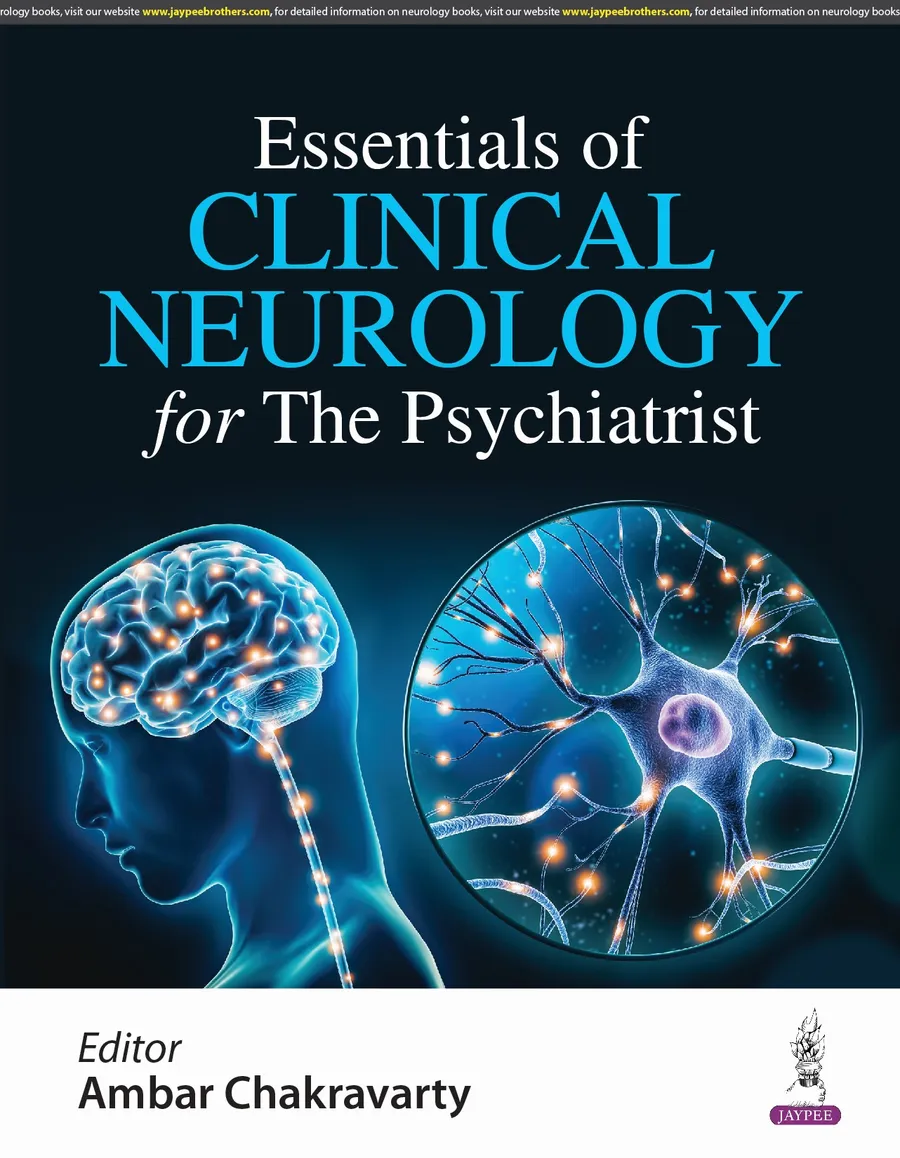Home
|
Products
|
9789356962026

Essentials of Clinical Neurology for The Psychiatrist
by AMBAR CHAKRAVARTY
Highlights

9789356965508
ISBN

AMBAR CHAKRAVARTY
Author

430
Pages

1.37 gm
Weight

English
Language

2025
Year

1st Edition
Edition

Hardcover
Binding
₹1917
₹2625
Neurology and psychiatry are indeed allied disciplines, but the gap between the two seems wide, especially among the specialists but not perhaps amongst the lay public. While neurologists try to explain a patients symptoms based on structural changes in the central or peripheral nervous system which can be detected in life through imaging, biopsy, and microscopy or after death through postmortem studies and subsequently through histopathological means, psychiatrists deal with an abstract concept, namely disorders of the mind. Lishman wrote in the Preface to the first edition of his book Organic Psychiatryâ Neurology deals directly with the apparatus of mind by investigating malfunction of the brain. Yet paradoxically it has often paid scant attention to mental disorder itself. Psychiatry on its part deals essentially with mental disorder yet has had little in relative terms to do with the hardware upon which mind depends. The rich complexity of human behavior and the multitude of factors which can shape and distort it have clearly demanded a multifaceted growth of clinical psychiatry; the subject had profited from psychodynamic, psychosocial and pharmacological approaches to mental disorder, but with the expert neurologist waiting in the wings the factor of brain malfunction has sometimes tended to be eclipsedâŚâŚâŚâ
With advancement in neurosciences and molecular sciences, this gap between the two disciplines is seemingly becoming narrower and narrower. Structural neurological disorders result from dysfunctioning at the cellular level at the diseased site, which in its turn produces clinically recognizable abnormalities through excessive or decreased release of chemicals called neurotransmitters, which generally act at the synaptic sites in the neural network that controls the appropriate function of the diseased brain part. This basic mechanism is also applicable in relation to the disorders of the peripheral nervous system as well. Mind, on the other hand, can be viewed as an abstract function of the brain, which is totally dependent on the neural networking in the brain made up of axons and dendrites of the brain cells (hence structural elements), and the activities of the various neurotransmitters released by the brain cells (again structural elements). Modern-day technologies have made it possible to visualize these changes histopathologically as well as in life through functional and molecular neuroimaging. The gap, thus, between neurology and psychiatry can be bridged. The result had been greater understanding of the psychiatric manifestations of essentially structural neurological disorders and for the psychiatrists to look for stigmata of underlying structural brain disorders in patients presenting with apparently disorders of mind like emotional and behavioral alterations and also to identify neurological phenomena developing as a result of treatment with various drugs commonly used by them to treat such aberrations of mental functions. The bottom line is that neurologists must have some basic knowledge of psychiatric illnesses and the vice versa. In an ideal situation, basics of both the subjects need to be incorporated in the curriculum of through practical clinical training. And this is indeed practiced in a handful of premier institutions of the country.
Online store of medical books
Discover a comprehensive range of medical books at our online store. From anatomy and physiology to the latest clinical guidelines, we've got you covered.
Trusted by students, educators, and healthcare professionals worldwide. Browse top publishers and expert-authored titles in every medical specialty. Enjoy fast shipping, secure payments, and easy returns. Your one-stop destination for quality medical knowledge at your fingertips.
Whether you're preparing for exams or expanding your clinical expertise, our curated collection ensures you have the right resources at hand. Dive into detailed illustrations, case studies, and up-to-date research that enhance your understanding and practical skills.
We regularly update our inventory to include the latest editions and newly released titles, helping you stay current in the ever-evolving medical field. Our advanced search and filtering tools make finding the perfect book quick and hassle-free.
Join our community of lifelong learners and medical enthusiasts. Sign up for exclusive discounts, early access to new arrivals, and personalized book recommendations tailored to your professional interests.
